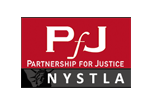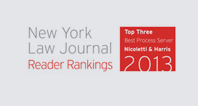While it was once a rare problem, it is increasingly common for plaintiffs these days to be forced to deal with the complications of serving process on foreign defendants. This can become an issue when serving process against foreign corporations, such as in cases involving international commerce, or against individuals when they travel to the United States and commit a tortious act. Plaintiffs hoping to bring a lawsuit against foreign defendants should be mindful of these complications, or else risk losing their case based on procedural delays or errors.
Service of process on foreign defendants, including individuals and corporations, is governed by Rule 4(f) of the Federal Rules of Civil Procedure. Under Rule 4(f)(1), service of process may be effectuated “by any internationally agreed means of service that is reasonably calculated to give notice.” This means that the rules for determining what forms of service are permissible on foreign defendants are dictated by international agreement, although Rule 4(f)(3) allows service of process to be effectuated by any means that has not been prohibited by an international agreement if regular methods fail.
One international agreement of major importance in serving process on foreign defendants is the Hague Convention on the Service Abroad of Judicial and Extrajudicial Documents, known more simply as the Hague Convention for short. The Hague Convention designates two primary means of serving a foreign defendant: service through a designated central authority of the appropriate foreign nation, or service by mail. Accepting service through mail is optional, and countries that are party to the Hague Convention may object to it; on the other hand, every country bound to the Hague Convention must accept service through a central authority. Even with these methods of service, however, there can still be complications that interfere with serving foreign defendants.
One recent case where these complications became clear is in Victaulic Company v. Allied Rubber & Gasket Co., Inc., where repeated efforts to serve a Chinese corporation in a lawsuit failed due to seeming interference by Chinese government authorities. When the plaintiff, an American company, attempted to serve process through the Chinese central authority as dictated by the Hague Convention, they were informed that the central authority could take up to two years to serve process about the defendant, and that proof of service could take an average of one to five months to return. When the American company tried to serve by mail, the Chinese government objected to the method under Article 10(a) of the Hague Convention.
After needing to file six separate extension on their case due to these procedural delays, the American company eventually invoked Rule 4(f)(3) of the Federal Rules of Civil Procedure and served process on the company electronically. Specifically, it published notice of its suit in the online version of Wall Street Journal Asia for four consecutive weeks, and additionally sent a copy of the service to the email address listed on the company’s “contact us” page. The United States District Court ruled this was permissible, as using electronic service was not prohibited by any international agreement, and more traditional attempts at effectuating service had failed.
This is a somewhat extreme example, but it highlights the difficulties that can arise when trying to serve process on foreign defendants. It is easy to get caught in the tangle of international agreements that govern these processes, and it can take great care to navigate the complexities. That is why you should make sure you have experienced process servers who can work with you to make sure your lawsuit is properly served, regardless of where the defendant is.
The process servers at Nicoletti & Harris have provided service of process and litigation support for our clients since 1986, giving us the experience to handle the demands of the modern legal environment. We provide service for all areas of law, assisting clients throughout New York, New Jersey, and Florida. If you require a process server or other forms of litigation support, contact our New York office at (212) 267-6448, or you can contact our New Jersey office at (732) 677-3903, or you can visit our contact page.












